In this episode, the Fellows talk about everything from an obsession with Stalin to baseball as a metaphor for life.
You can enjoy the episode in its entirety or listen to segments from particular Fellows.
Frank 5 Episode 6 (Grab Bag): Full Episode
In this episode, the Fellows talk about everything from an obsession with Stalin to baseball as a metaphor for life.
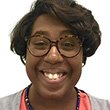 “The obsession I have with Russia started in the sixth grade.”
“The obsession I have with Russia started in the sixth grade.”
Kimberly St. Julian-Varnon ’12 speaks with Professor Sa’ed Atshan.
Kimberly is a high school history teacher and community college professor. She’s also a Texan, African-American woman, Russian-speaker, and Magic the Gathering player.
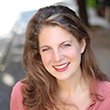 “I think the field of theater is in an interesting time.”
“I think the field of theater is in an interesting time.”
Nell Bang-Jansen ’11 speaks with Professor Tim Burke.
Nell is a Philadelphia-based theater director and creator and is currently working on a theater piece made with and for people who work as caregivers.
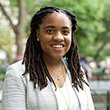 “I’m not perfect and that is OK.”
“I’m not perfect and that is OK.”
Marissa Davis ’08 speaks with Professor Rachel Buurma.
Marissa is a bridge-figure, social engineer and advocate for creating sustainable pathways to a better quality of life for historically disenfranchised communities.
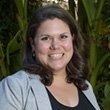 “Wow, they have a class on Balinese gamelan.”
“Wow, they have a class on Balinese gamelan.”
Kara Peterman ’09 speaks with Professor K. Elizabeth Stevens.
Kara is a structural engineering experimentalist who joined the department of Civil and Environmental Engineering at UMass Amherst in 2016. She is passionate about outreach and has promoted the advancement of underrepresented groups in engineering for over a decade.
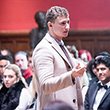 “Sometimes the only thing people are waiting for is for you to say, ‘Play ball!'”
“Sometimes the only thing people are waiting for is for you to say, ‘Play ball!'”
Sam Sussman ’13 speaks with Professor Krista Thomason.
Sam is the co-founder of Extend, a start-up NGO focused on conflict resolution education in Israel-Palestine. He’s also an award winning screenwriter.
Frank 5 Episode 6 (Grab Bag): Transcript
Host: It’s the Frank Five Fellows podcast series, informal conversations with recent liberal arts grads. They’re in business, they’re engineers, they’re educators and they’re artists. What’s on the minds of recent graduates? What are the fellows thinking about? In this episode find out, it’s everything, listen to the fellows talk about: Russia, theater, baseball, and a host of other topics.
Up next, Kimberly St. Julian-Varnon, and Sa’ed Atshan.
Sa’ed Atshan: Now I know that, at some point you discovered an interest and what became a real passion, for the study and the learning of the Russian language, as well as an interest in Slavic studies, and, European studies, Eastern European studies. So, how on Earth did you discover this intellectual curiosity?
Kim St. Julian-Varnon: Honestly, this obsession I had started in sixth grade, I was home sick, I had perfect attendance every year. But, I was sick at home, and there was this eight-hour long documentary on the History channel, called Russia land of the Tsars. And by the time I finished this eight-hour long documentary, my fever had broken, and I was obsessed with Russia. And, I never had a chance to like engage this obsession, until I went to Swarthmore, and I was looking at the course catalog, and it had this first year seminar called Angels of Death: Russia under Lenin and Stalin.
And I was like, this is my life’s work right here.
Atshan: Wow.
St. Julian-Varnon: So, I took the class and I was obsessed with it, it was with Dr. Weinberg, and I decided that I needed more of that in my life. So, I took more European classes and more Eastern European classes. The idea of nations and nationalism really interests me, and so, part of wanting to be a Soviet historian is learning Russian. And, I was taking French at Swarthmore, and then during my study abroad year, I took Russian, because I was doing some research over the summer at Swarthmore, and I heard Professors Cybil and Forrester speaking Russian on the phone. And I just fell in love with the language, and decided, okay, I’m going to do this, I’m going to focus on Soviet history.
So, I started taking Russian, and I love it. I think it’s fascinating, I cannot tell you that this is a healthy obsession. But, I love it.
Atshan: And so, how many people of color are in this field?
St. Julian-Varnon: Not-
Atshan: And what is that like?
St. Julian-Varnon: There are very few people of color in the field, there are more now than when I was doing my undergraduate work. It’s weird because Swarthmore has been really good at producing Slavicists who are people of color.
And, when we go, we went to the Slavic conference my senior year, and we started meeting other people of color who were working in Slavic studies, and most of them are doing Russian and Slavic literature and languages. So, I was kind of the only person doing history, but to see other people of color doing it, and we didn’t fill, there are probably about a handful of us, at that point.
And I was talking to them at Swarthmore, I was like, yeah my best friend Jackie, who’s also a black woman, like, yeah, we take Russian. And then there was LaTavia who took Russian, she was two years older than us, and she was doing a full [inaudible 00:03:45]. So, like yeah, swat, this is kind of normal, where you have black women speaking Russian.
And then there was another girl taking Russian, she was a Freshman when we were Seniors, and she was black, and she was taking Russian. And so, we go to these Slavic conferences, and they’re just kind of obsessed with this PSE powerhouse of Russian that Swarthmore has, and they asked us how Swat did it. And, we just said, they let us. They never told us we couldn’t. The idea that our skin color was somehow strange to speaking Russian, never came up.
And so, I think that, that has helped, and I’m part of a group that helps to spread diversity in Slavic studies to all people of color, but also LGBTQ community, because it’s very small, and Slavic studies is still predominantly non people of color. So, predominantly male. And, as more and more people are getting into it, I think it’s becoming more diverse, though we still have a long fight.
And, being a black woman who’s doing Soviet history, I think I’m one of two or three that I know about around the country. So, I think it’s important and I’m glad Swarthmore let me do that, and never told me I couldn’t do it, or that it was strange that a person of my color would be doing something like that.
Host: Up next, Nell Bang-Jensen and Tim Burke.
Tim Burke: Well, so that’s another interesting thing, right? We make a lot of claims here, and I think every institution that calls itself Liberal Arts, that we’re helping you to be ready for an uncertain world. For changing circumstances, to be adaptive, to be flexible. As you look down the road now, 10, 20 years out, what do you see coming in the work that you’re doing, that you either feel ready for, or unready for? What’s your future look like now as you imagine it outward?
Nell Bang-Jensen: Yeah, that’s a really good question, I mean I think, I’ll talk about the field first and then about myself. I think the field of theater is actually in a really exciting time, in part because of timing. I think when the regional theater movement started in the states in the 78s, a lot of people, a lot of artists were put in charge, and, who are now retiring. So, there’s just a lot of movement in the field.
There’s a lot of openings of leadership positions around the country, and there’s going to be a lot of people filling them, and a lot of talk about making sure a lot of those slots are filled by women and people of color. Which they have not historically been. So, I’m really excited to see how that shapes the field as a whole. I think theaters are in a little bit of a crisis, in that, for most regional theaters the average subscriber is a white woman over the age of 55.
And, I think, you know, as sort of, the next generation comes, who’s a generation very used to getting the entertainment they want on demand on their phone, any time, saying, no, no, no, you should show up at a theater at a specific time and place. It’s going to be worth it I promise. Is a really hard challenge.
And I don’t know that it’s always worth it. There’s a lot of really good TV out there right now, so, I think it’s actually a great challenge for the field of, okay, how do we create work that’s different from what people’s watching, people are watching on a screen, what’s different about a theatrical experience? And how can we be more inclusive? So that different kinds of people, want to come be a part of it?
And that’s part of why I’m really interested in this work of making theater with people outside of the industry, because I think, if we’re not making it with them, we can’t say that it’s for them.
So, those are sort of developments in the field I’m really excited for.
Host: Up next, Marissa Davis, and Rachel Buurma.
Rachel Buurma: Is there anything else that, in these last couple of minutes, that you’d like to say, or revise or return to? We’ve talked about a lot of different topics.
Marissa Davis: Yeah, there is, you know, one of the questions that you’d asked me just about my experiences in college and then the [crosstalk 00:08:26]
Buurma: Mm-hmm (affirmative)
Davis: Moments at which I’ve learned either more about myself or had discovered something, some kind of learning, either in or outside of the classroom. I think actually think about, a really important learning that is, I guess, discovering many ways that I still take with me now.
And that’s just rooted in this idea that one, I am not perfect. And not only is that okay, but it’s also … The idea of being perfect is also this, it’s unhealthily unrealistic. You know, that being human is first and foremost what we should be focusing on. And I think, so often, particularly within classrooms and colleges and workplaces where there is a lot placed on being really high achieving, I think there is this spoken or unspoken rule or idea that you’re supposed to be really perfect and be really good.
Buurma: Mm-hmm (affirmative)
Davis: Good at what you do, and in some ways sacrifice everything else in order to be that good. And I think, once I just came to terms with the fact that, hey, the best thing I can do is be a solid and whole human being, and enjoy the things that I do. It actually isn’t that I’m going to yield or get to this place of perfection, but I’ll get to a place that is still helpful and is still productive.
Host: Up next, Kara Peterman and Elizabeth Stevens.
Elizabeth Stevens:Can you remember or tell me about a time when you kind of knew you were in the right place when you came to Swarthmore. I’m not sure what your college selection process was, but, when was a time when you felt like, oh, this is where I should be, this is right for me?
Kara Peterman: I actually applied to Swarthmore early decision and got in, so, I was pretty convinced it was the right place for me [crosstalk 00:11:04]
Stevens: Of course.
Peterman: When I even just visited campus.
I, gosh, I mean, I can honestly say I felt it was the right place when I just discovered Swarthmore as a student applying. I remember just reading about various things, like how quirky some of the courses were. At least, from my perspective as a high schooler.
I went to a very large public high school, and what we had, a large swath of courses to take, it was all bread and butter classes. There were no interesting seminars, there were no, no diverse music groups or anything like that.
And I remember I saw, the Balinese gamelan course, and as it was, I had been to Bali, and I had heard the gamelan musicians in the street. And, wow, they have a course on Balinese gamelan?
I mean it was incredulous to me, it was incredible, I thought it was insane but also very attractive. My one regret is I never actually took Balinese gamelan at Swarthmore, so that was something that still goes with me to this day. But, I, that was just one of many things that I learned about Swarthmore that made me feel that it was the right place. And then it was just further confirmed when I got to campus and, as a Freshmen, in orientation, and all of these things throughout my life which had made me sort of an outsider, or not an outsider, but you know, everyone did one thing and I did something else. Or, I grew up in a foreign country, and that made me different growing up.
All of these things made me fit right in at Swarthmore, and it was one of the few, it was one of the few instances of belonging I had truly felt at that point in my life. And, it just, everything that made me weird or different, made me fit in perfectly at Swarthmore.
And so, that was very early on, as I said, the first week or so on campus.
Host: Up next, Sam Sussman and Krista Thomason.
Krista Thomason: Tell me about your first day on the job?
Sam Sussman: Great, so, I said the question … Did it say, can I change it a little bit? Because, I think it said first day on your first job, and I was really-[crosstalk 00:13:33]
Thomason: Oh, I’m sorry, I didn’t realize, you are correct, it is first day on the first job. But yeah, I kind of want to know, not about your first job, I wanna know about this job.
Sussman: Okay, alright, I’ll do both if that’s okay. And if one is really boring you can, you know, cut it out. So, when I was, this is the first day on the first job, when I was 14, someone offered me 15 bucks to umpire baseball game.
Thomason: What?
Sussman: And I’d been playing baseball all my life, loved baseball, and I was just getting to the age where it was really apparent that I wasn’t very good at baseball. I had sort of strung along … You know, until 14, no ones that good.
Thomason: Right.
Sussman: So, you know, if you can kind of aim the ball, even if you throw it, you know like 45 miles an hour, you might even get to pitch a few innings.
Thomason: There you go.
Sussman: You know, by 12 I’d reached the peak of my career, by 14, things were kind of on the down and out.
So, I was excited, alright, here’s a new way to play baseball. And, then I showed up to the ballpark, and I crouched behind home plate, and the kids came out onto the field, and the pitcher had the ball, and he was looking, staring down the batter, and these kids were maybe 11 or 12 years old.
So, I probably could have played competitively in that game. And, then there was just this long pause, and the coaches stared at me, and the players stared at me, and I was thinking, why aren’t they playing? What’s happening? And then I realized, oh, I have to say, play ball.
Thomason: That’s right.
Sussman: So I said, “Play ball.” And then the kids started playing baseball. And, you know, I think there’s actually, for me, there’s been an important parable in that experience, I’ve chosen to pursue career paths that rely a lot on self-initiative, and for which there’s no exact path going forward.
And, you know, sometimes you just realize the only thing that people are waiting to happen is for you to say, “Play ball.”
Thomason: Right, right, I like that. I like that. There’s some things sort of, I mean, there’s the sort of ritual of baseball, right, and that sort of element of it. But then, yeah, there are these times when you’re oftentimes sort of looking around waiting for someone else to tell you what to do, or waiting for someone else to say, “Go.” And, actually it turns out that you’re the one who has to do it right?
Sussman: Yeah, yeah, you’ve got to say, “Play ball.”
Host: Thanks for listening, this podcast was produced by the Aydelotte Foundation and the Language and Media Centers at Swarthmore College. To learn more visit www.swarthmore.edu/aydelotte-foundation. That’s Swarthmore edu Aydelotte Foundation.
